- Blogs Teacher Professional Development
- 5 Minute Read
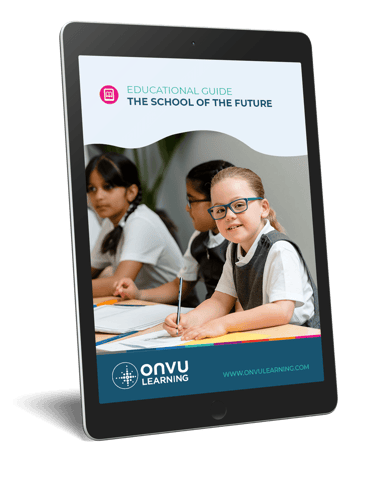
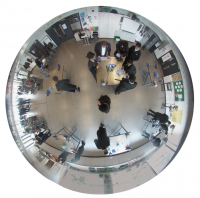
.gif?width=1280&height=720&name=Dewarping%20(1).gif)
‘Any school wanting to invest in its culture of learning and teaching to the benefit of all, should also consider ONVU Learning.’ Damien Kearns, Principal Nishkam High School.
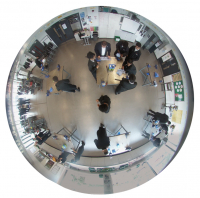 ONVU Learning was created on the basis of one fundamentally important question: what tool will best enable teachers to self-reflect on their practice using real-time and contextualised visual and audio feedback?’
ONVU Learning was created on the basis of one fundamentally important question: what tool will best enable teachers to self-reflect on their practice using real-time and contextualised visual and audio feedback?’
We also want to answer, how can schools and Trusts roll out CPD across their teachers at scale for lower costs than those of traditional methods?
The education system is always evolving, but there seems to be little fundamental change in the area of teacher CPD, which, let’s be honest, makes no sense! Education is about giving every child a chance of a brighter future and in order to do this, teachers should be helped to deliver the best lessons, day in, day out. But, how can we ensure our teachers are getting the correct training and support for them, when the very practices we use to asses their work are outdated and often unreliable?
Lesson observations have traditionally played an important role in teacher CPD, but there must be better and more effective ways to gain better insights into teachers’ practice that are less intrusive and more actionable. Advancements in technology now give us a myriad of ways to improve students’ learning. Most EdTech is geared towards content access and delivery for students. Innovations offer us the opportunity to directly and purposefully support teachers as learners too. By providing our educators with cutting edge technology focused on them as developing professionals we empower them to discover new possibilities and identify opportunities through self-directed or coached reflection. Within a school or Trust’s overarching approach, this leads to actionable insights and fewer barriers, ensuring they get it right, if not the first time, then soon after.
So how can ONVU Learning lift barriers and break from outdated practices, empowering our educators to provide excellent learning outcomes for our students?
It goes without saying that it’s typically impossible and undesirable to have teaching leaders see teaching and learning in every classroom, every day. The impact would be low and the cost would be unthinkable, particularly in today’s financial climate. There would also be the issue of biased outcomes driven by the dreaded observer effect, which impacts teacher performance and student behavior. Classrooms are complex environments with various events occurring simultaneously and shaping every lesson. A classroom observer cannot realistically fully assess teacher performance and pupil learning in a holistic manner in a single visit or even over a few visits during a period of time. Feedback can be misinterpreted or based on incorrect evaluations, leaving teachers feeling judged rather than inspired to improve and unclear how. It could be different! Through useful and thoughtful in-depth, collaborative and critical analysis that is bespoke to their individual progression needs and framed within a well-understood school improvement model, great things can happen with and for teachers. One such model has been recently blogged by Lee Northern, Strategy Director at E-Act, and highlights the importance of having a golden thread weaved between Trust-wide and teacher-led improvement.
Traditional classroom observations and their contemporary derivatives only allow for limited collaboration because an observer will tell the teacher what they have seen and then encourage conversation from that subjective starting point. The teacher is then expected to remember instances that are being discussed, usually at a point long after the observation has occurred. The teacher is immediately at a disadvantage, observer effect has taken place during the class, they are trying to remember what actually happened in the class and someone telling them what they may have done wrong leaves them feeling judged, which isn’t the most effective way to get the best out of someone.
As schools and MAT’s grow, leaders need to find innovative and sustainable ways of taking away the mystery of what is happening within classrooms and ensuring the very best teaching and learning is occurring. Only in this way will teachers and leaders co-create the best possible CPD experiences whilst removing the negative elements of feelings of exposure, observer effects and judgment. ONVU Learning offers leaders the ability to take a deep dive into the classroom experience and understand areas of impact for improving pedagogy, teacher CPD and benchmarking standards both school- and MAT-wide.
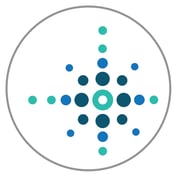 ONVU Learning is set up in a room and designed to be in place for at least a half term. Pre-scheduled recording cycles mean that teachers and students turn up to lessons as normal, removing any observer effect. During the lesson, the teacher, who has primary control over their recordings, can note moments that they’d like to focus on during their self-reflection. Afterwards, the teacher can review their chosen snippets and share clips of pertinent points in their lessons with a trusted colleague, leader and coach. Imagine a teacher is trying to improve their students’ subject-specific vocabulary in geography; through ONVU learning the teacher could reflect on the instances that students use the targeted vocabulary (let’s say, ‘the Coriolis Effect’) and see how and why it is being developed effectively as students learn about hurricane formation in the North Atlantic. Per lesson and over time, the teacher could mark moments when the terminology is in focus and self-reflect on the extent to which their chosen activities are helping students acquire and then use the term.
ONVU Learning is set up in a room and designed to be in place for at least a half term. Pre-scheduled recording cycles mean that teachers and students turn up to lessons as normal, removing any observer effect. During the lesson, the teacher, who has primary control over their recordings, can note moments that they’d like to focus on during their self-reflection. Afterwards, the teacher can review their chosen snippets and share clips of pertinent points in their lessons with a trusted colleague, leader and coach. Imagine a teacher is trying to improve their students’ subject-specific vocabulary in geography; through ONVU learning the teacher could reflect on the instances that students use the targeted vocabulary (let’s say, ‘the Coriolis Effect’) and see how and why it is being developed effectively as students learn about hurricane formation in the North Atlantic. Per lesson and over time, the teacher could mark moments when the terminology is in focus and self-reflect on the extent to which their chosen activities are helping students acquire and then use the term.
Through our unique solution, footage obtained from one position can give views of the whole classroom. Imagine a teacher and coach wanting to reflect on the effectiveness of group work in one part of the room while a teaching assistant supports students in another part of the room. This would be hard through traditional methods but very easy with our approach.
Being able to spot their own learning requirements gives teachers autonomy over their own development needs, giving them a deeper understanding of their teaching capabilities, boosting their classroom confidence and giving them back control. Peer-to-peer collaboration allows leaders to build a bank of expertise on which to improve and learn. Being able to evidence what is working in a classroom and share that securely across classrooms, schools and MAT’s is a great way to reflect and continually improve a school’s teaching standards and promote excellent learning outcomes.
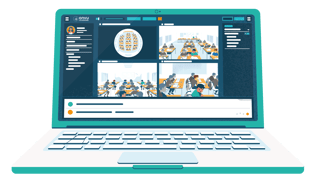 When I speak of lifting barriers, I’m also talking about cost barriers, schools and MAT’s are currently facing extensive financial pressures. It is a great shame that more than ever, schools’ ability to enhance their core purpose (learning) is being forced into a position at odds with financial reality. Hikes in energy bills for most schools in England and having to sustain 5% pay rises from their existing funds add to anticipated budget pressures. Reduced real-term budgets also mean some trusts are forced to redeploy staff to support the increased number of children with additional needs instead of recruiting new staff. All these factors are calling upon schools to explore new working practices and cost efficiencies, particularly when rolling out teacher development approaches across multiple classrooms and school sites.
When I speak of lifting barriers, I’m also talking about cost barriers, schools and MAT’s are currently facing extensive financial pressures. It is a great shame that more than ever, schools’ ability to enhance their core purpose (learning) is being forced into a position at odds with financial reality. Hikes in energy bills for most schools in England and having to sustain 5% pay rises from their existing funds add to anticipated budget pressures. Reduced real-term budgets also mean some trusts are forced to redeploy staff to support the increased number of children with additional needs instead of recruiting new staff. All these factors are calling upon schools to explore new working practices and cost efficiencies, particularly when rolling out teacher development approaches across multiple classrooms and school sites.
ONVU Learning delivers improvements in observation accuracy, and consistency while driving down costs associated with traditional, people-intensive approaches. For example, existing users report that they are performing many times the number of ONVU Learning powered self-reflection and coaching sessions compared to traditional approaches. Trusts are saving time and money on site-to-site travel by taking advantage of some of the time of remote coaching. Over time, we believe that teachers and leaders will get so much out of this approach that the likelihood of retaining great staff will increase, in addition to the positive effect that good quality CPD already has on retention.
We believe ONVU Learning has the ability to innovatively change how teaching and learning is developed and underpinned. We seek to positively impact the learning and development of our teachers and provide leaders with a cost- effective alternative to traditional teacher support approaches at scale. We are the change that the education sector desperately needs to move forward in order to meet today’s challenges and provide the very best learning experiences for our children.

The School of the Future Guide is aimed at helping school leaders and teachers make informed choices when designing the learning environments of the future using existing and upcoming technologies, as they seek to prepare children for the rest of the 21st century – the result is a more efficient and competitive school.
KEEP IN TOUCH WITH ONVU LEARNING AND RECEIVE THE LATEST NEWS ON EDTECH, LESSON OBSERVATION, AND TEACHER TRAINING AND DEVELOPMENT.